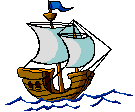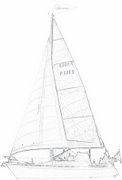
 Antonio da Silva was always the first on the docks to greet them. Those fishermen replaced the family he didn't know back in Portugal. When he left, his mother sold fresh fish in the open market. He had never known his father, probably a fisherman lost at sea. For over 30 years, the kitchen of Antonio da Silva's boarding house was a safe harbour, a home away from home, for dozens of Portuguese fishermen. Antonio used to say to his daughters of the fishermen's regular visits to their home, "They're out to sea for so long and they just like to come home and have a little bit of home life. We're not their family but let's pretend while they're here."
During their time in town, the crews and dorymen played soccer along the waterfront. They visited the Fishermen's Centre and window-shopped along Water and Duckworth streets. They had a bit of money to spend, the officers more than the others. They remembered their families back home, buying souvenirs such as games, toys, dolls, perfume and cosmetics. Some men picked up merchandise they had ordered the year before. Purchases were small, but over the years it all added up. According to estimates made in 1972, each Portuguese ship that came into the harbour of St. John's spent nearly $22,000 per visit. In that year along, the Portuguese ships were reported to have spent over $5million. The annual cost of postage stamps alone added up to thousands of dollars.
The people of St. John's also bought things from the fishermen, indulgences like cigarettes, gin and whiskey. The fishermen would come up to Antonio da Silva's place, for example, bringing along a fish or two, and a few jars of wine. Someone would pull out a guitar, and Antonio with his accordion or fiddle, and the party would get started. "These poor old fellows," Antonio was known to say. "They're some mother's sons. So be good to them."
There was also generous socializing with the town folk, fostering a deep rapport of friendship and interdependence. The fleets' captains were known for inviting friends and business associates from the town aboard their ships and into their dining saloons for a night of fine Portuguese cuisine. And in 1955 a festival was held in St. John's to welcome the arrival of a new addition to the fleet. The port was lined with dignitaries, businessmen and citizens.
The launching of the new ship also marked the quincentennial celebration of the Portuguese presence in the waters off Newfoundland. There were celebratory masses. The St. John's film council organized a special film festival for the fishermen, with showings of the films "Portuguese Grand Bankers" and "Portuguese Golden Beaches," with announcements printed in both the Portuguese and English language. The festivities ended when a parade of 4,000 Portuguese fishermen marching to the Basilica of St. John the Baptist bearing a three-and-a-half foot high statue of Our Lady of Fatima, a gift of gratitude and friendship intended as a holy link between the two peoples. A statue of Gaspar Corte-Real also stands looking out to sea, in remembrance of the Corte-Real brothers' 1501 and 1502 exploration of these coastal waters, to which they ultimately lost their lives.
It had been five hundred years since the Portuguese had first made contact with the maritime shores of Newfoundland. Occasionally over the years fishermen would come ashore to stay. By 1935 they numbered 6,000. But few of their families followed, and a Portuguese community never really rooted. What Portuguese community there ever was, gradually left for the bigger cities of Québec and Ontario. The festival year 1955 was the height of the relationship between the Portuguese and the Newfoundlanders, especially the people of St. John's. It marked the end of an era. Canada began to express concern about protection of its fish stocks and respect for the national boundaries of territorial waters. National recriminations and a rupture in the relations between Canada and Portugal ensued. On July 23, 1974 the last ship of the White Fleet, the Novos Mares, sailed out from St. John's Newfoundland. The era of the Portuguese in Newfoundland was over. Antonio da Silva's family of Portuguese fishermen had gone and would not being returning to port.
Antonio da Silva was always the first on the docks to greet them. Those fishermen replaced the family he didn't know back in Portugal. When he left, his mother sold fresh fish in the open market. He had never known his father, probably a fisherman lost at sea. For over 30 years, the kitchen of Antonio da Silva's boarding house was a safe harbour, a home away from home, for dozens of Portuguese fishermen. Antonio used to say to his daughters of the fishermen's regular visits to their home, "They're out to sea for so long and they just like to come home and have a little bit of home life. We're not their family but let's pretend while they're here."
During their time in town, the crews and dorymen played soccer along the waterfront. They visited the Fishermen's Centre and window-shopped along Water and Duckworth streets. They had a bit of money to spend, the officers more than the others. They remembered their families back home, buying souvenirs such as games, toys, dolls, perfume and cosmetics. Some men picked up merchandise they had ordered the year before. Purchases were small, but over the years it all added up. According to estimates made in 1972, each Portuguese ship that came into the harbour of St. John's spent nearly $22,000 per visit. In that year along, the Portuguese ships were reported to have spent over $5million. The annual cost of postage stamps alone added up to thousands of dollars.
The people of St. John's also bought things from the fishermen, indulgences like cigarettes, gin and whiskey. The fishermen would come up to Antonio da Silva's place, for example, bringing along a fish or two, and a few jars of wine. Someone would pull out a guitar, and Antonio with his accordion or fiddle, and the party would get started. "These poor old fellows," Antonio was known to say. "They're some mother's sons. So be good to them."
There was also generous socializing with the town folk, fostering a deep rapport of friendship and interdependence. The fleets' captains were known for inviting friends and business associates from the town aboard their ships and into their dining saloons for a night of fine Portuguese cuisine. And in 1955 a festival was held in St. John's to welcome the arrival of a new addition to the fleet. The port was lined with dignitaries, businessmen and citizens.
The launching of the new ship also marked the quincentennial celebration of the Portuguese presence in the waters off Newfoundland. There were celebratory masses. The St. John's film council organized a special film festival for the fishermen, with showings of the films "Portuguese Grand Bankers" and "Portuguese Golden Beaches," with announcements printed in both the Portuguese and English language. The festivities ended when a parade of 4,000 Portuguese fishermen marching to the Basilica of St. John the Baptist bearing a three-and-a-half foot high statue of Our Lady of Fatima, a gift of gratitude and friendship intended as a holy link between the two peoples. A statue of Gaspar Corte-Real also stands looking out to sea, in remembrance of the Corte-Real brothers' 1501 and 1502 exploration of these coastal waters, to which they ultimately lost their lives.
It had been five hundred years since the Portuguese had first made contact with the maritime shores of Newfoundland. Occasionally over the years fishermen would come ashore to stay. By 1935 they numbered 6,000. But few of their families followed, and a Portuguese community never really rooted. What Portuguese community there ever was, gradually left for the bigger cities of Québec and Ontario. The festival year 1955 was the height of the relationship between the Portuguese and the Newfoundlanders, especially the people of St. John's. It marked the end of an era. Canada began to express concern about protection of its fish stocks and respect for the national boundaries of territorial waters. National recriminations and a rupture in the relations between Canada and Portugal ensued. On July 23, 1974 the last ship of the White Fleet, the Novos Mares, sailed out from St. John's Newfoundland. The era of the Portuguese in Newfoundland was over. Antonio da Silva's family of Portuguese fishermen had gone and would not being returning to port.Texto retirado do site http://www.whitepinepictures.com/










5 comentários:
É...tudo acaba!Dá mesmo que pensar.Concordo consigo.JC.
que história extraordinária!
We're not their family but let's pretend while they're here...
essa parte é linda... o coitado é que ficou sem família
Sim,.
"... Antonio da Silva's family of Portuguese fishermen had gone and would not being returning to port."
Enviar um comentário